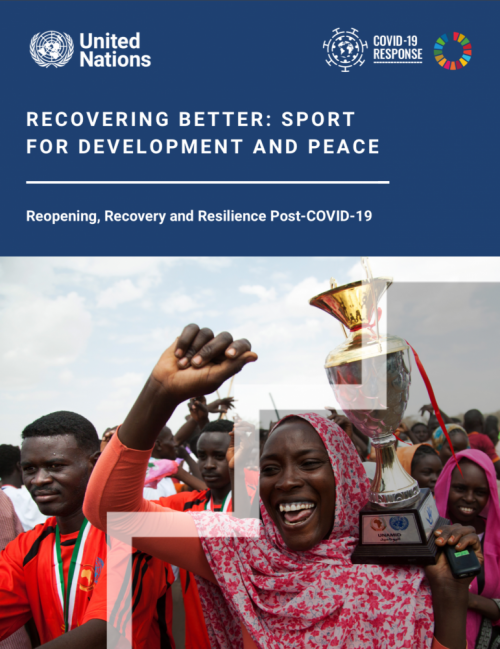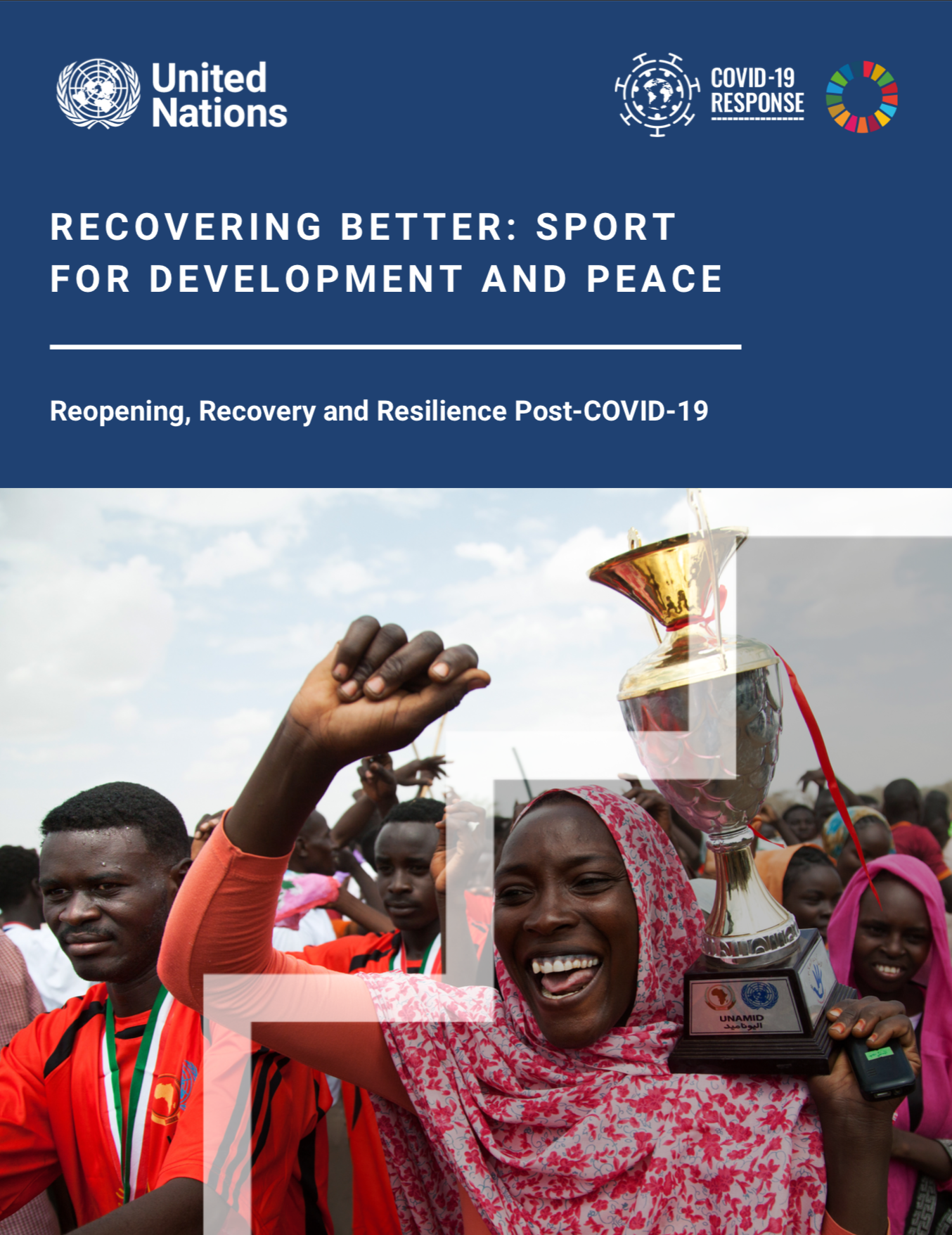
https://www.un.org/development/desa/dspd/recovering-better-sport-for-dev...
Sport is about participation. It brings individuals, communities and countries together and, in doing so, often bridges cultural, ethnic and national divides. But the COVID-19 pandemic has taken a heavy toll on the world of sport, both in the professional and in the recreational spheres.
Many sporting events were postponed or canceled due to the risk of mass gatherings amplifying the transmission of the virus, as well as risks to athletes and professionals supporting these players and events. It was many months into the crisis before, with much innovation and collaboration, athletes began to return to arenas, in most cases, with fans still absent, and with varying consequences for the athletes and their families.
UN DESA launched an advocacy brief on 15 December 2020, co-led by UN-Women, titled ‘Recovering Better: Sport for Development and Peace Reopening, Recovery and Resilience Post-COVID-19’. The brief was collaboratively drafted by sport focal points in the following entities: World Health Organization, UN Office for Drugs and Crime, UN Educational, Scientific and Cultural Organisation, International Labour Organization, UN High Commissioner for Refugees, UN Children’s Fund, UN Office of the Special Representative of the Secretary-General on Violence Against Children, UN Climate Change, UN Environment Programme and the UN Office of Counter-Terrorism.
The brief sets out a vision to support the reopening, recovery and resilience of sport. The brief first highlights critical intersects between sport, physical activity, SDG achievement, and COVID-19 impact, the consequences of these intersects for our individual and collective wellbeing and ideas for addressing these consequences. It then presents critical actions or issues to be addressed across four key areas – promoting human rights and combatting discrimination; ensuring equal access to sport and physical activity; safeguarding participants; and ensuring integrity in sport- seeking to imagine the necessary course adjustments for bringing the sporting world safely back into full operation with renewed and refocused vigor.
 The vision presented is a multistakeholder and multilateral vision, requiring collaboration between Member States, civil society, the private sector and other stakeholders, to maximize the contribution of sport to the implementation of the Sustainable Development Goals. It draws from normative frameworks and sport-policy instruments including the UN Action Plan on Sport for Development and Peace; the Kazan Action Plan; the Global Action Plan on Physical Activity 2018-2030 as well as the 2030 Agenda for Sustainable Development and other relevant conventions, declarations, resolutions and principles. It is also based on the experiences of UN entities, in their work with experts, partners, government officials and other stakeholders in related fields.
The vision presented is a multistakeholder and multilateral vision, requiring collaboration between Member States, civil society, the private sector and other stakeholders, to maximize the contribution of sport to the implementation of the Sustainable Development Goals. It draws from normative frameworks and sport-policy instruments including the UN Action Plan on Sport for Development and Peace; the Kazan Action Plan; the Global Action Plan on Physical Activity 2018-2030 as well as the 2030 Agenda for Sustainable Development and other relevant conventions, declarations, resolutions and principles. It is also based on the experiences of UN entities, in their work with experts, partners, government officials and other stakeholders in related fields.
The brief concludes by homing in on the role of the UN system in this multilateral, multistakeholder re-envisioning of sport as both an end and a means in the recovery from the impacts of COVID-19.










Add new comment